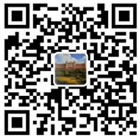Tutor Qualification:Master's Advisor
Department:Department of Medical Informatics
E-mail:fangli9@mail.sysu.edu.cn
Research direction:1 Bioinformatics methods for the detection and interpretation of genetic variation; 2) Biomedical text mining/natural language processing.
Links:https://fanglab.cn
Personal profile
Fang Li, Associate Professor and Master's Supervisor, Department of Genetics and Biomedical Informatics. In 2010, he graduated from the Basic Pharmacy Science Base class of the School of Pharmacy, China Pharmaceutical University and obtained his Bachelor of Science degree. In 2015, he graduated from the School of Basic Medicine of Peking University with a Doctor of Science degree (Supervisor: Professor Nanping Wang). From 2016 to 2022, he conducted postdoctoral research at Columbia University and the University of Pennsylvania/Children's Hospital of Philadelphia in the United States, and his co-supervisor was Professor Kai Wang. In November 2022, it was introduced through the "100 People Plan" of Sun Yat-sen University and selected into the "Yi Xian Scholars" plan. His research interests include: (1) Bioinformatics methods for the detection and interpretation of genetic variation; 2) Biomedical text mining/natural language processing. Genetic variation detection tools such as LinkeSV and DeepRepeat, functional analysis tools such as MutFormer and Phen2Gene, and biomedical natural language processing models such as Bioformer have been developed. Won the first prize in the BioCreative VII COVID-19 Literature Subject Classification Competition in 2021. He has published more than 10 papers as The lead author in high-level academic journals such as Nature Communications (2019), Nature Methods (2022), Genome Biology (2022), and The Innovation (2023). He is a reviewer of academic journals such as Genome Medicine and Bioinformatics, a young editorial board member of Journal of Genetics and Genomics, and a member of the Health Care Big Data and Artificial Intelligence Branch of Guangdong Translational Medicine Society.
Personal homepage: https://fanglab.cn
Anyone interested in medical genetics, bioinformatics or medical natural language Processing is welcome to join us. Please contact Dr. Fang Li at fangli9@mail.sysu.edu.cn.
Academic achievement
Representative treatise
- Jiang T, Fang L#, Wang K#. Deciphering the Language of Nature: A transformer-based language model for deleterious mutations in proteins. The Innovation. 2023. DOI: # https://doi.org/10.1016/j.xinn.2023.100487 (corresponding author, the IF: 32.1)
- Ahsan MU, Liu Q, Perdomo JE, Fang L, Wang K. A survey of algorithms for the detection of genomic structural variants from long-read sequencing data. Nature Methods. 2023. DOI: https://doi.org/10.1038/s41592-023-01932-w (48.0) IF:
- Fang L*, Monteys AM*, Durr A, Keiser M, Cheng C, Harapanahalli A, et al. Haplotyping SNPs for allele-specific gene editing of the expanded huntingtin allele using long-read sequencing. The Human Genetics and Genomics Advances. 2023. DOI: https://doi.org/10.1016/j.xhgg.2022.1001466 (* co - first author)
- Fang L, Wang K. Polishing high-quality genome assemblies. Nature Methods. 2022. DOI: https://doi.org/10.1038/s41592-022-01515-1 (48.0) IF:
- Fang L*, Liu Q*, Monteys AM, Gonzalez-Alegre P, Davidson BL, Wang K. DeepRepeat: direct quantification of short tandem repeats on signal data from nanopore sequencing. Genome Biology. 2022. DOI: https://doi.org/10.1186/s13059-022-02670-6 (* co - first author, the IF: 17.9)
- Fang L, Kao C, Gonzalez MV, Mafra FA, Pellegrino da Silva R, Li M, et al. LinkedSV for detection of mosaic structural variants from linked-read exome and genome sequencing data. Nature Communications. 2019. DOI: https://doi.org/10.1038/s41467-019-13397-7 (17.7) IF:
- Zhao M*, Havrilla JM*, Fang L*, Chen Y, Peng J, Liu C, Wu C, Sarmady M, Botas P, Isla J, Lyon GJ, Weng C, Wang K. Phen2Gene: rapid phenotype-driven gene prioritization for rare diseases. NAR Genomics and Bioinformatics. 2020. DOI: https://doi.org/10.1093/nargab/lqaa032 (* co - first author)
- Fang L, Wang K. Identification of Copy Number Variants from SNP Arrays Using PennCNV. Methods in Molecular Biology. 2018. DOI: https://doi.org/10.1007/978-1-4939-8666-8_1 (Springer book series)



